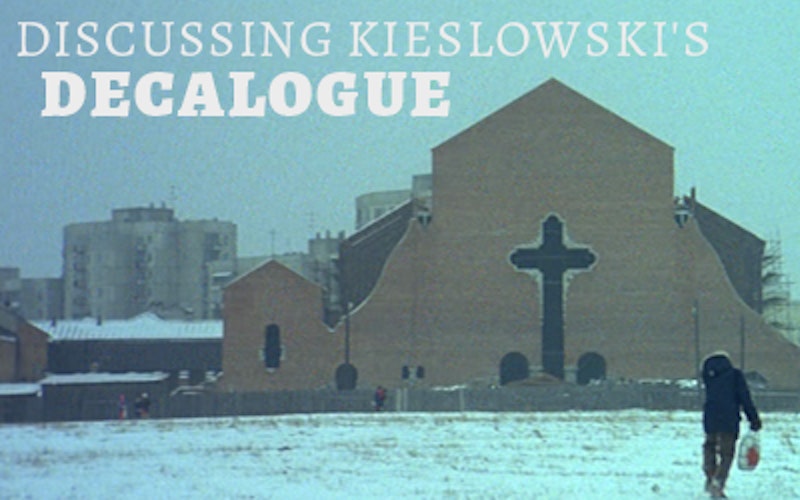
Movies
Discussing Kieslowski's Decalogue V
This is part of a joint series with Elijah Davidson of Reel Spirituality, in which we’re considering each installment of The Decalogue. Krzysztof Kieslowski's landmark collection of short films was first released on Polish television in 1989 and is based on each of the Ten Commandments. Links to our other posts can be found here.
So much for these films being highly abstract considerations of the Ten Commandments.
“Thou shalt not kill” is one of the most commonly understood commandments and Decalogue V features two murders. (Spoilers to follow.) One is a seemingly irrational act: an antisocial youth (Miroslaw Baka) choking, then beating, then bludgeoning a taxi driver (Jan Tesarz). The other is a “rational” procedure: the state’s execution of the youth, named Jacek, for the crime. And if that’s not direct enough for you, the movie even opens with an extended voiceover rumination on the purpose of the law and the nature of punishment, delivered by the law student (Krzysztof Globisz) who will go on to unsuccessfully defend Jacek in court.
So the theme is served up on a silver platter, perhaps blessedly so for those of us who have struggled with the oblique approach director and co-writer Krzysztof Kieslowski has taken towards the Ten Commandments thus far. In fact, if you simply read the movie’s surface, you could almost accuse Kieslowski of being strident, simply refashioning the Commandment to read “thou shalt not capitally punish.”
Yet as we’ve come to learn, there is more going on here, even if Decalogue V certainly does work as a case against capital punishment. Just as the movie heavily relies on mirror images (making it one of the most intensely cinematic installments thus far), the narrative itself can be seen as a small reflection of a larger idea, one that – I’d argue – points to something we’ve only seen glimmers of previously: the need for Christ.
This is partly tied in to my reading of Decalogue III, which I interpreted as a criticism of the impossibility of the Mosaic Law. You pushed back, Elijah, to suggest that Decalogue III may have simply been an observation of how the Law exists in part to make us aware of our sin, and therefore our need of Christ. Could something in between be going on in Decalogue V? By equating these two deaths (something Kieslowski does by portraying both in the same harsh, unflinching manner), might this be a commentary on the mercilessness of the Mosaic Law and the payment it demands? And, as a result, be less of a call for Old Testament justice than recognition of the necessity for New Testament grace?
Topics: Movies